第5章 ON THE WILLEBROEK CANAL(2)
Half-way between Willebroek and Villevorde, in a beautiful reach of canal like a squire's avenue, we went ashore to lunch. There were two eggs, a junk of bread, and a bottle of wine on board the ARETHUSA; and two eggs and an Etna cooking apparatus on board the CIGARETTE. The master of the latter boat smashed one of the eggs in the course of disembarkation; but observing pleasantly that it might still be cooked A LA PAPIER, he dropped it into the Etna, in its covering of Flemish newspaper. We landed in a blink of fine weather; but we had not been two minutes ashore before the wind freshened into half a gale, and the rain began to patter on our shoulders. We sat as close about the Etna as we could. The spirits burned with great ostentation; the grass caught flame every minute or two, and had to be trodden out; and before long, there were several burnt fingers of the party. But the solid quantity of cookery accomplished was out of proportion with so much display;and when we desisted, after two applications of the fire, the sound egg was little more than loo-warm; and as for A LA PAPIER, it was a cold and sordid FRICASSEE of printer's ink and broken egg-shell.
We made shift to roast the other two, by putting them close to the burning spirits; and that with better success. And then we uncorked the bottle of wine, and sat down in a ditch with our canoe aprons over our knees. It rained smartly. Discomfort, when it is honestly uncomfortable and makes no nauseous pretensions to the contrary, is a vastly humorous business; and people well steeped and stupefied in the open air are in a good vein for laughter.
From this point of view, even egg A LA PAPIER offered by way of food may pass muster as a sort of accessory to the fun. But this manner of jest, although it may be taken in good part, does not invite repetition; and from that time forward, the Etna voyaged like a gentleman in the locker of the CIGARETTE.
It is almost unnecessary to mention that when lunch was over and we got aboard again and made sail, the wind promptly died away. The rest of the journey to Villevorde, we still spread our canvas to the unfavouring air; and with now and then a puff, and now and then a spell of paddling, drifted along from lock to lock, between the orderly trees.
It was a fine, green, fat landscape; or rather a mere green water-lane, going on from village to village. Things had a settled look, as in places long lived in. Crop-headed children spat upon us from the bridges as we went below, with a true conservative feeling.
But even more conservative were the fishermen, intent upon their floats, who let us go by without one glance. They perched upon sterlings and buttresses and along the slope of the embankment, gently occupied. They were indifferent, like pieces of dead nature. They did not move any more than if they had been fishing in an old Dutch print. The leaves fluttered, the water lapped, but they continued in one stay like so many churches established by law. You might have trepanned every one of their innocent heads, and found no more than so much coiled fishing-line below their skulls. I do not care for your stalwart fellows in india-rubber stockings breasting up mountain torrents with a salmon rod; but Ido dearly love the class of man who plies his unfruitful art, for ever and a day, by still and depopulated waters.
At the last lock, just beyond Villevorde, there was a lock-mistress who spoke French comprehensibly, and told us we were still a couple of leagues from Brussels. At the same place, the rain began again.
It fell in straight, parallel lines; and the surface of the canal was thrown up into an infinity of little crystal fountains. There were no beds to be had in the neighbourhood. Nothing for it but to lay the sails aside and address ourselves to steady paddling in the rain.
Beautiful country houses, with clocks and long lines of shuttered windows, and fine old trees standing in groves and avenues, gave a rich and sombre aspect in the rain and the deepening dusk to the shores of the canal. I seem to have seen something of the same effect in engravings: opulent landscapes, deserted and overhung with the passage of storm. And throughout we had the escort of a hooded cart, which trotted shabbily along the tow-path, and kept at an almost uniform distance in our wake.